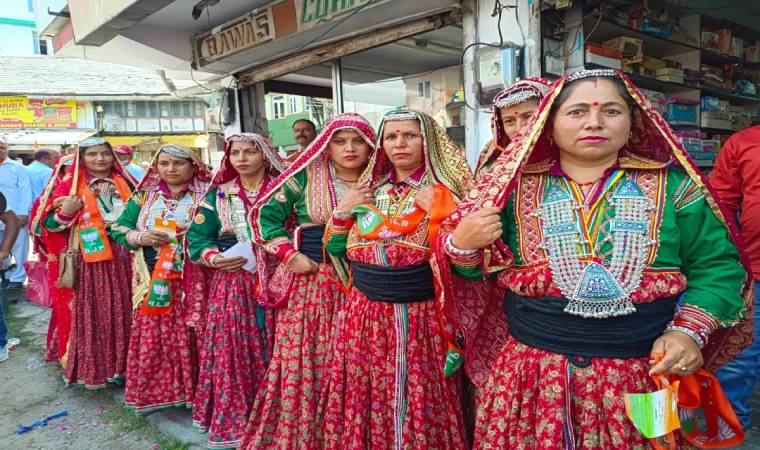In the age of Instagram and fast-paced itineraries, travel has become more accessible and more rapid than ever before. But beneath the allure of curated photos and passport stamps lies a truth that seasoned travellers understand well. Real travel isn’t just about places; it’s about people, culture, and connection.
To immerse yourself in a destination is to understand and honour the very heartbeat of its community. It requires more than visiting famous landmarks. It asks for curiosity, humility, and a willingness to listen. Respecting local cultures while traveling is not just good etiquette- it’s an essential part of being a responsible global citizen.

1. Begin with Curiosity, Not Assumption
One of the most powerful mindsets a traveller can adopt is that of a learner. Every destination whether a bustling city or a quiet village, carries centuries of stories, rituals, and ways of life. These aren’t to be judged or compared to our own but rather observed and appreciated.
What may appear unusual to the foreign eye is often deeply rooted in history or spiritual belief. By choosing curiosity over criticism, you allow space for authentic understanding.
If you encounter a custom you don’t understand, ask respectfully. Most locals are more than willing to share the “why” behind their traditions when approached with genuine interest.
2. Learn Basic Local Phrases
While it’s unreasonable to master every language you encounter, taking the time to learn a few essential words—like “hello,” “thank you,” or “excuse me”—demonstrates goodwill. Even a clumsy attempt is often received with appreciation.
Language is more than communication; it’s a bridge. And even a few words can transform an interaction from transactional to personal.
3. Dress Thoughtfully and Modestly (local travel)
Appropriate attire varies widely across cultures, especially in religious or rural settings. What may be acceptable at a beach resort could be deeply disrespectful at a temple or community market.
Research local norms before you pack, and when in doubt, opt for modesty. A lightweight scarf or shawl can be a versatile addition for both practical and respectful dressing.
In places of worship, covering shoulders, knees, and sometimes the head is customary. Always observe and follow posted guidelines.
4. Honour Sacred Spaces and Rituals
Religious and spiritual sites are places of deep meaning for local communities. These sacred places should be treated with respect, not just used as a background for taking pictures. They deserve reverence.
Remove your shoes where required, speak in hushed tones, and refrain from pointing at idols or symbols. If photography is allowed, ask for permission before clicking, and never interrupt a sacred ceremony for the sake of a perfect shot.
5. Try Local Cuisine with an Open Mind during local travel
Food is a gateway into culture. Local dishes often tell stories of geography, history, and survival. While not every meal will suit your palate, approaching local cuisine with respect is essential.

Avoid making derogatory comments about food, even if it’s unfamiliar. Taste with an open mind and appreciate the effort and tradition behind each preparation.
6. Seek Permission Before Photographing People
In many communities, taking someone’s photo—especially without asking—can be considered invasive or offensive. Children, elders, and artisans are not tourist props; they are individuals with agency.
When in doubt, ask. A smile and polite gesture can open the door to a deeper moment of connection, and often, a better photograph.
7. Be Fair When Bargaining
Markets are vibrant spaces where culture and economy intersect. While bargaining is expected in many places, it’s important to approach it with respect. Don’t belittle handmade work or haggle aggressively over negligible amounts.
A good rule of thumb: If you can afford to pay the asking price, and it’s fair, do so willingly. Support local artisans and vendors whenever possible.
8. Avoid “Cultural Collecting” and Stereotyping
Travel is not a checklist of experiences to collect for social media validation. Attending a tribal dance, participating in a tea ceremony, or visiting a local home should be approached with humility, not entitlement.
People are not performers for your pleasure. Treat each interaction as a privilege, not a photo opportunity.
Also, discard any preconceived notions about a country or its people. Every individual you meet is unique and cannot be defined by a stereotype.
9. Support Local Economies- local travel
Whenever possible, stay in locally owned accommodations, eat at family-run restaurants, and purchase directly from artisans. Your spending has the power to uplift communities and sustain traditional crafts and livelihoods.
Travel, when done mindfully, can be an act of empowerment.
10. Understand Your Own Cultural Footprint
As travellers, we carry with us the image of our home countries. Our behaviour whether respectful or careless, shapes how locals perceive not only us, but others who may follow in our footsteps.
Be the kind of guest you would welcome into your own home. Apologize when you err, listen more than you speak, and adapt wherever you can. These small gestures create ripples of goodwill.
Travel That Transforms
True travel doesn’t just change your surroundings—it changes you. And that transformation begins with how you engage with the world around you.

Respecting local cultures is not about following a rigid set of rules. It’s about empathy. About acknowledging that while we may not fully understand every custom, we can choose to honour it.
In return, you’ll often receive something far more valuable than souvenirs: warmth, stories, friendships, and the quiet joy of knowing you’ve left no harm in your wake—only footprints and fond memories.
So wherever your next journey takes you, take this with you: Kindness is universal. Respect is unforgettable. And travel, when guided by both, becomes a truly beautiful thing.














